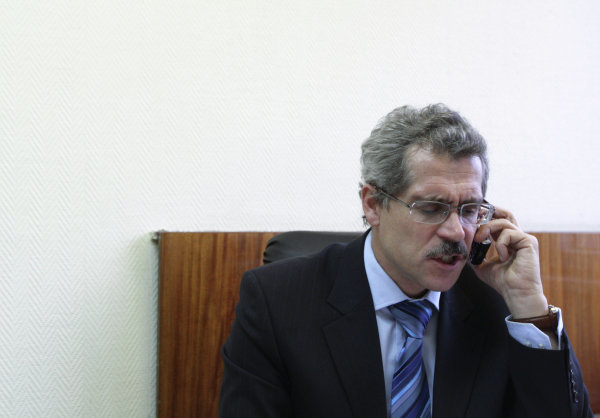MOSCOW, May 15 (RAPSI) – Russian investigators seek to interrogate German journalist Hajo Seppelt as part of a case against former Director of the Moscow Anti-Doping Laboratory and WADA informant Grigory Rodchenkov charged with abuse of office, the Investigative Committee’s press service reports Tuesday.
If Seppelt comes to Russia, the Investigative Committee will again take steps to question him over circumstances became known to him during creating the documentary about doping violations allegedly committed by Russian athletes, the statement reads.
Earlier, the Investigative Committee asked law enforcement bodies of foreign states for legal assistance in the case. In particular, investigators sought to get testimony of persons significant for inquiry including Seppelt and professor Richard McLaren. German law enforcement responded that Seppelt refused to give testimony.
Rodchenkov is charged in Russia with abuse of office and illegal trafficking of potent and toxic substances for the purposes of sale. He has been put on the international wanted list and arrested in absentia.
In November 2017, Russian investigators said that they would seek extradition of Rodchenkov from the United States. They believe that he was unlawfully selling prohibited medicines and deliberately destroyed doping tests of Russian athletes.
In May 2016, The New York Times published an article citing Rodchenkov, who maintained that at least 15 Russian athletes winning gold medals in Sochi were involved in a Russian “doping program” aimed to dominate its home Olympics. Professor Richard McLaren from Canada was appointed by WADA as the Independent Person (IP) to head an investigative team charged with determining the facts with respect to the allegations of manipulation of doping control samples and other allegations made by Rodchenkov.
In mid-July 2016, the first part of the so-called McLaren Report was presented by McLaren acting as an independent person in a probe into alleged state-sponsored cover up and manipulation of the doping control process. At that time, the authors stated that the Russian sport authorities were aware of these facts; moreover, certain officials directly participated in falsifications.
According to the Investigative Committee’s spokesperson Svetlana Petrenko, allegations made in McLaren’s Report were debunked by Russian investigators. They spoke to hundreds of athletes, coaches, medical professionals living in Russia, who were involved with various sports and anti-doping institutions. None of them confirmed existence of state-wide doping program. If any violations took place they were made only on individual basis, Petrenko asserted.
Several athletes and coaches stated that Rodchenkov himself was distributing substances of unknown purpose, later revealed as doping, the press release reads. After complex tests were conducted by investigative team it was revealed that “anomalies” in results of athletes were caused by peculiarities of physiological processes in kidneys of persons, who underwent physical activity. Other statements made in the Report were similarly debunked and Petrenko notes that WADA has no evidence of mass consumption of doping by Russian athletes.
Last week, Russian investigators forwarded to WADA evidence rebutting testimony Rodchenkov, who claimed that doping tests of Russian athletes were destructed and substituted.



